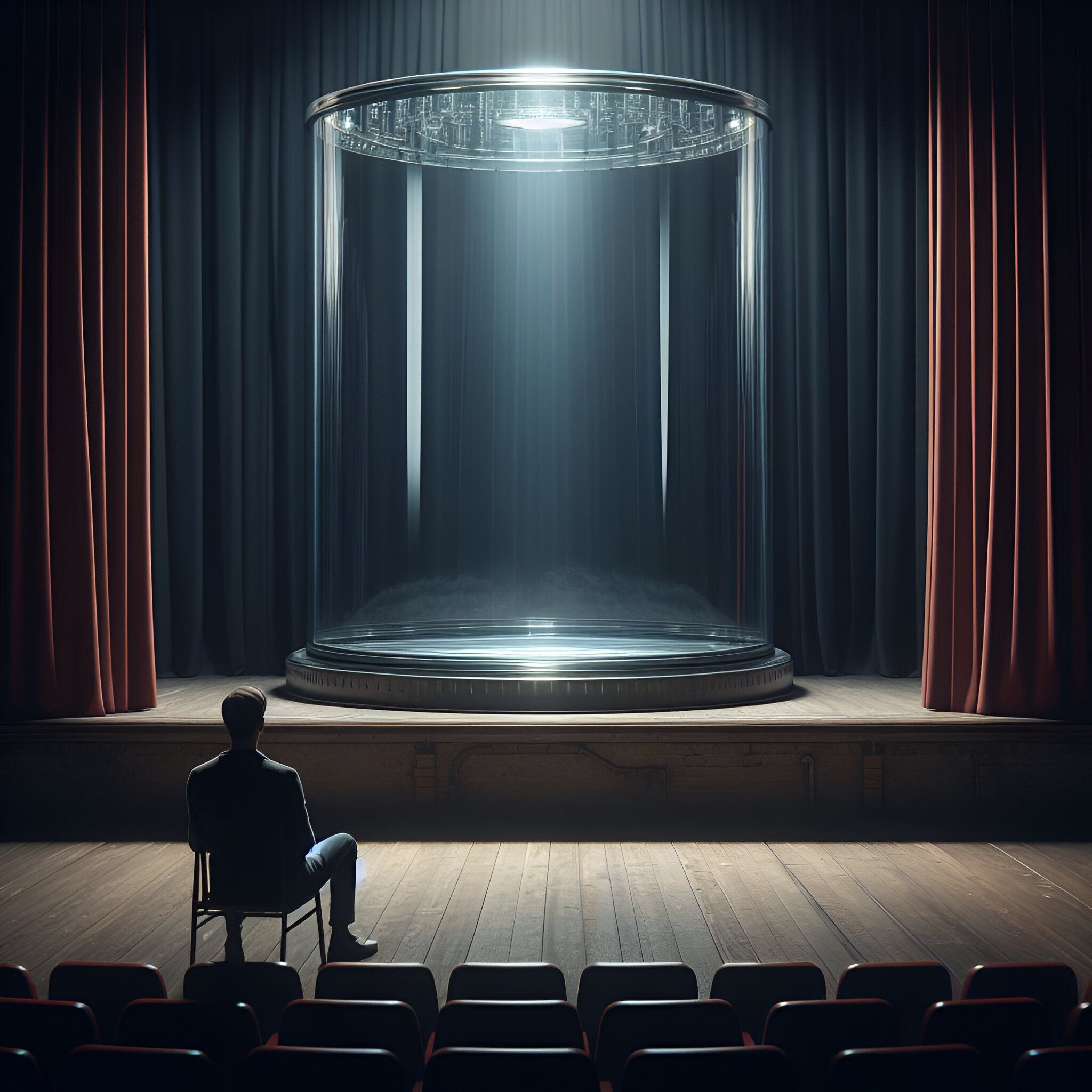
The Immersion Chamber
One
They sit in silence. He becomes increasingly uncomfortable under her regard, shifting in his seat, brushing an imaginary piece of lint from his suit trouser leg. There is a metallic taste in his mouth, the chemical residue of the euphoric. Finally, he asks, “Well?”
“Your duty as a citizen?” Her tone of mockery smarts. “Is that what you tell yourself?” She snorts her disbelief, a mannerism he knows well. “Why didn’t you refuse?”
“There is no such right anymore.”
“You could have declared yourself a conscientious objector.”
“Like you? In a time like this? I’m not stupid.”
She stares at him, then laughs. “You mean you don’t have the courage?”
Inside the chamber, the First Technician presses a button and leans forward towards a microphone on a flexible stand. The speaker over Kline’s head crackles into life.
“Subject walking.”
Kline focuses his attention on the Observation Window.
A door in the rear of the chamber opens, and the Subject enters.
The Subject, a man, is middle-aged, in his late forties or early fifties. He is naked, plump, and carrying a sizeable cylindrical lead weight. His head is shaved, revealing several livid purple bruises on the scalp. He looks like a drunk used-car salesman regretting a night on the tiles that ended in a nasty brawl. Then Kline sees the missing ear and a ragged excision, taped shut, where his left nipple had once been. The man limps. His right foot is swollen, pink, and tender. He must be drugged, tranquilized.
Kline feels his throat tighten.
His sister says, “You’re telling me he’s an enemy of the State?”
“It’s not my role to judge.”
“And that makes things better? Is that what you tell yourself?”

The Immersion Chamber
He breathes the vapor out, closing his eyes. His expression is pained yet beatific, his features fragile, like eggshell. He drains the vapor capsule, letting the euphoric loosen the knot in his chest until he can bear to open his eyes once more. His attention settles on the Record of Immersion form clipped to the clipboard on his lap. It is, he thinks (a shadow passes across his face), a recipe for the extinction of the human spirit. He has to concentrate to ease the pain under his breastbone, trying to see the theatre through fresh eyes. The quietude, the dim lighting, the rows of seats like pews, the podium like a pulpit, the tank a strange corruption of an altar, give the impression of a chapel nestled in the crook of a church. There is almost a sense of reverence here.
Kline sets his jaw, determined to present himself as professionally as possible, even though he is alone and unwatched. He takes the tortoise-shell fountain pen from his inside jacket pocket, composes himself, marshaling his expression into one of quiet determination, takes the lid off the pen, wipes the nib on his handkerchief, and writes his name, and the time and date in the relevant boxes at the top of the form.